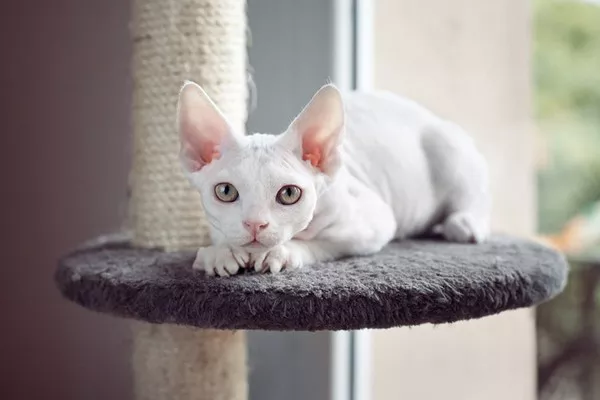Welcoming a new kitten into your home is an exciting and joyous occasion. However, as any new kitten owner can attest, these adorable bundles of fur can also be full of energy, especially during nighttime hours. Many kitten owners wonder when their furry friend will finally calm down at night and allow for a peaceful night’s sleep. In this article, we’ll explore the factors that influence kitten behavior at night, discuss typical patterns of kitten development, and provide tips for helping your kitten settle down for a restful night’s sleep.
Understanding Kitten Behavior
Before delving into the question of when kittens calm down at night, it’s essential to understand the factors that influence their behavior. Like human babies, kittens go through various stages of development, each characterized by distinct behaviors and needs. Understanding these stages can provide valuable insights into your kitten’s behavior and help you support their physical and emotional well-being.
1. Early Developmental Stages
During the first few weeks of life, kittens are entirely dependent on their mother for warmth, nourishment, and care. They spend the majority of their time sleeping, nursing, and growing. As they mature, they begin to explore their surroundings and develop social skills through interaction with their littermates and mother.
2. Socialization Period
Around 2 to 7 weeks of age, kittens enter a critical socialization period during which they learn to interact with other cats and humans. This stage is crucial for shaping their behavior and temperament later in life. Proper socialization during this period can help kittens develop into well-adjusted and confident adults.
3. Playful Phase
As kittens reach 8 to 12 weeks of age, they enter a playful phase characterized by boundless energy and curiosity. During this stage, kittens engage in exploratory behavior, chasing toys, pouncing, and climbing. Play is essential for kittens’ physical and cognitive development and helps them hone their hunting instincts.
4. Adolescence
Around 3 to 6 months of age, kittens enter adolescence, a period marked by hormonal changes and increased independence. During this time, kittens may exhibit erratic behavior, including increased vocalization, spraying, and aggression. It’s essential for kitten owners to provide consistent guidance and positive reinforcement during this transitional period.
When Do Kittens Calm Down at Night?
Now that we have a better understanding of kitten development, let’s address the burning question: when do kittens calm down at night? The answer can vary depending on factors such as the individual kitten’s temperament, environment, and level of socialization. However, there are general trends that can help predict when kittens are likely to become more settled at night.
1. Gradual Transition
For most kittens, the transition to quieter nights occurs gradually over several months as they mature and adjust to their new environment. During the early weeks and months of life, kittens may be prone to nighttime restlessness and playfulness, mirroring their natural hunting instincts. As they grow older and become more accustomed to their surroundings, they typically begin to settle into more predictable sleep patterns.
2. Spaying and Neutering
Spaying and neutering play a significant role in regulating kitten behavior, including nighttime activity. Kittens that have been spayed or neutered tend to exhibit less restless behavior and are less likely to engage in nighttime roaming or vocalization associated with mating behaviors. It’s essential to discuss the appropriate timing for spaying or neutering with your veterinarian to ensure your kitten’s overall health and well-being.
3. Consistent Routine and Environment
Establishing a consistent routine and providing a stimulating yet structured environment can help encourage healthy sleep habits in kittens. This includes regular feeding times, scheduled play sessions, and creating a comfortable sleeping area free from distractions. By providing a predictable routine and safe space for rest, kitten owners can help promote relaxation and calmness at night.
4. Patience and Positive Reinforcement
While it may take time for kittens to adjust to nighttime routines, patience and positive reinforcement are key. Avoid scolding or punishing your kitten for nighttime restlessness, as this can create anxiety and stress. Instead, focus on providing comfort and reassurance, such as soothing words and gentle petting, to help your kitten feel secure and relaxed.
Tips for Promoting Restful Nights
In addition to understanding when kittens may calm down at night, there are several strategies that kitten owners can employ to promote restful nights for both themselves and their furry companions:
1. Interactive Playtime
Engage your kitten in interactive play sessions during the day to help burn off excess energy and stimulate mental and physical activity. Providing toys that encourage hunting and chasing behaviors can help satisfy your kitten’s natural instincts and tire them out before bedtime.
2. Comfortable Sleeping Area
Create a cozy and comfortable sleeping area for your kitten, complete with a soft bed or blanket and a quiet, secluded spot away from noise and distractions. Consider placing a ticking clock or a snuggle-safe heat pad in your kitten’s bed to mimic the comforting sound and warmth of their mother’s heartbeat.
3. Diminished Stimulation
Limit exposure to stimulating activities, such as vigorous play or loud noises, in the hours leading up to bedtime. Instead, engage in calm and soothing activities, such as gentle petting or quiet play, to help your kitten wind down and prepare for sleep.
4. Evening Mealtime
Offer a small, nutritious meal or snack before bedtime to help satisfy your kitten’s hunger and promote relaxation. Avoid feeding large meals or treats close to bedtime, as this may lead to digestive upset or nighttime wakefulness.
5. Consistent Bedtime Routine
Establish a consistent bedtime routine for your kitten, including feeding, playtime, and quiet relaxation before lights out. By following a predictable routine, you can help signal to your kitten that it’s time to wind down and prepare for sleep.
Conclusion
While kittens may initially be prone to nighttime restlessness and playfulness, with time, patience, and consistency, they will eventually settle into more predictable sleep patterns. By understanding the stages of kitten development, providing a stimulating yet structured environment, and implementing strategies to promote restful nights, kitten owners can help ensure peaceful evenings for themselves and their furry companions. Remember, every kitten is unique, so it’s essential to be patient and understanding as your kitten adjusts to their new surroundings. With love, patience, and plenty of cuddles, you and your kitten can enjoy many restful nights together.



























